What would you do? You're 25, work in the restaurant industry and have been unemployed since the pandemic started
In the monthly Strive newsletter, I share a real financial challenge and then gather insights from various individuals on the strategies they would use to deal with the challenge. This post summarizes the challenge and provides some crowd sourced ideas to help Richard move forward.
Richard’s Challenge
Richard is a 25-year-old living with a roommate in Toronto. He previously worked in the restaurant industry earning enough to support himself and enjoy some travel. Like many Canadians he has lost his job and has been surviving on government supports. He decided to start taking some university courses this September given that he was home. He is increasingly getting concerned about his future and how to make ends meet once government supports end.
Summary of Crowdsourced Strategies for Richard
Stay calm & confident - Richard’s situation is very stressful - the anxiety of being dependent on government supports, of not knowing when work will start, of not knowing what the future holds… The reality is that unfortunately Richard is not alone. He has succeeded up until this point and he will be able to pivot and build his resiliency. Staying calm will help Richard look at the situation from many angles and figure out the best path forward. Staying confident will help him dedicate the time and effort needed to move forward.
Stabilize - When you’re not working, you can start to feel like you are bleeding money - every expense seems to get you deeper and deeper into the hole. There are a number of things that can be done here. First is to make sure that Richard is taking advantage of all the available supports. These can range from the federal governments COVID supports for individuals to a breadth of industry specific supports provided by or lobbied for by community organizations. Here is an article outlining a breadth of resources for the hospitality industry and an article detailing lobby efforts by the Canadian Restaurant Workers Coalition. Second, Richard can think about way to reduce his expenses. Putting all his cots into a budget will help Richard go through each item on the list and problem solve solutions. Rent - is there an opportunity to move home? Loan costs - Is there an opportunity to negotiate with the bank for lower rates or payment deferrals? Here are a few good articles on ways to reduce expenses during this time: 8 ways to cut down your spending during the coronavirus crisis and Managing stress and your finances during the Covid-19 Pandemic
Establish specific goals - Now this is what will really help Richard build the life he wants. Having a specific goal will help Richard direct his efforts and resources. It is also the first crucial step in building a plan. A good place to start is for Richard to think about where would he like to be in 5 or 10 years.
What does this look like from a practical perspective?
What are Richard’s strengths?
What does he like doing?
What does he dislike?
What specific jobs exist that connect to Richard’s strengths and likes?
Are they scarce or is there a strong need?
What do they pay?
What education and experience levels are required?
How long does it take to get the required education and experience and how much will it cost?
These are all great questions that will take a while to answer. This process of goal setting and even building a plan will have quite a bit of exploration and many changes. This is really important work as the thinking and changes help Richard ensure he is on the right path.
Once he has specific goals, Richard can start to draft a plan to get the experience and education required to achieve his goals. Richard says that has started to take some university courses so he has an interest in further education. Given this, some resources that can help in the exploration stage include: employment outcomes, graduation and student loan default rates for a university and college programs as well as this article on what to study to land one of Canada’s 10 best jobs and the federal government’s job bank which has good resources on career planning including career quizzes and trend analysis outlining various occupations associated wages and prospects.
By staying calm and confident, stabilizing his situation and then establishing specific goals, Richard can make meaningful progress towards financial resiliency and his desired future.
